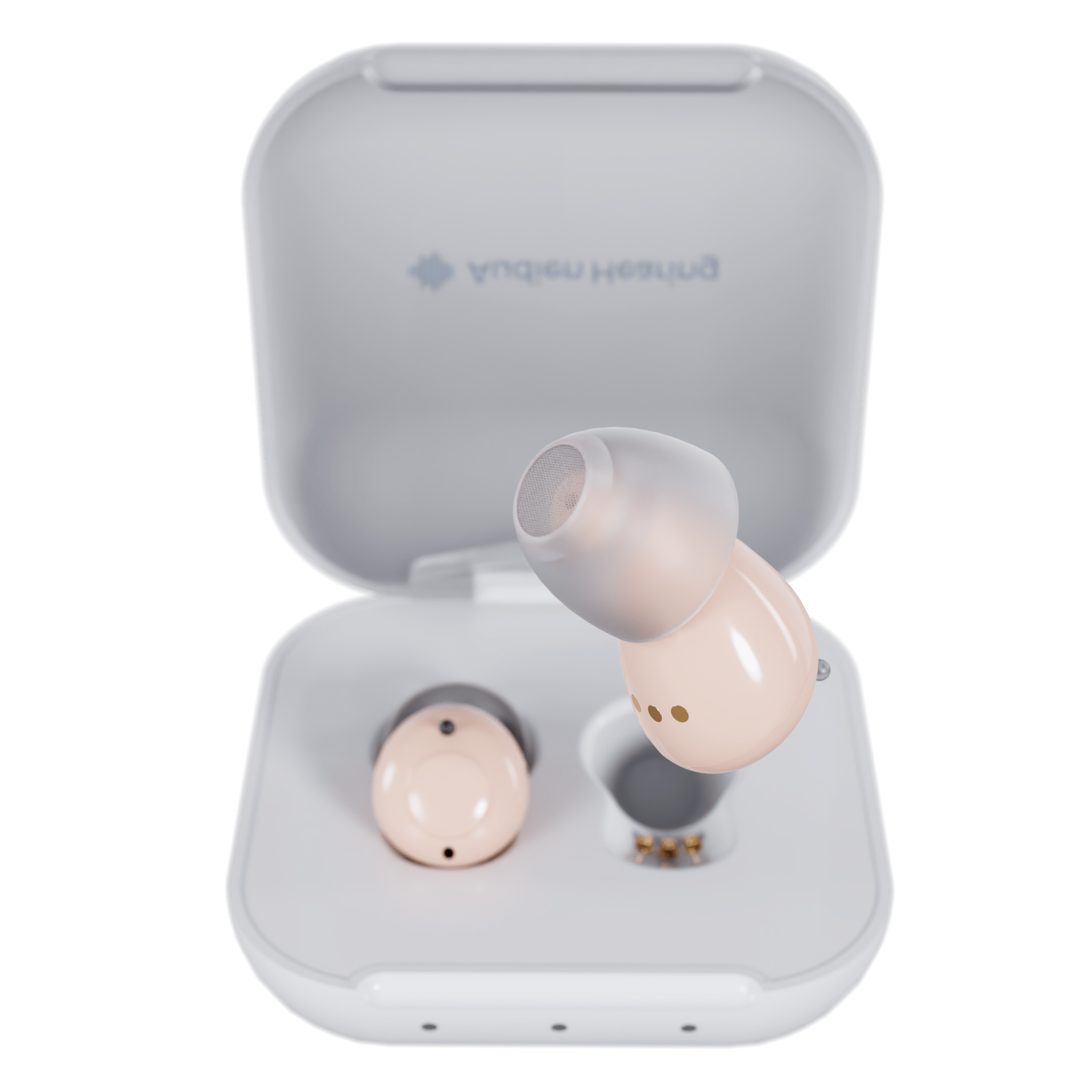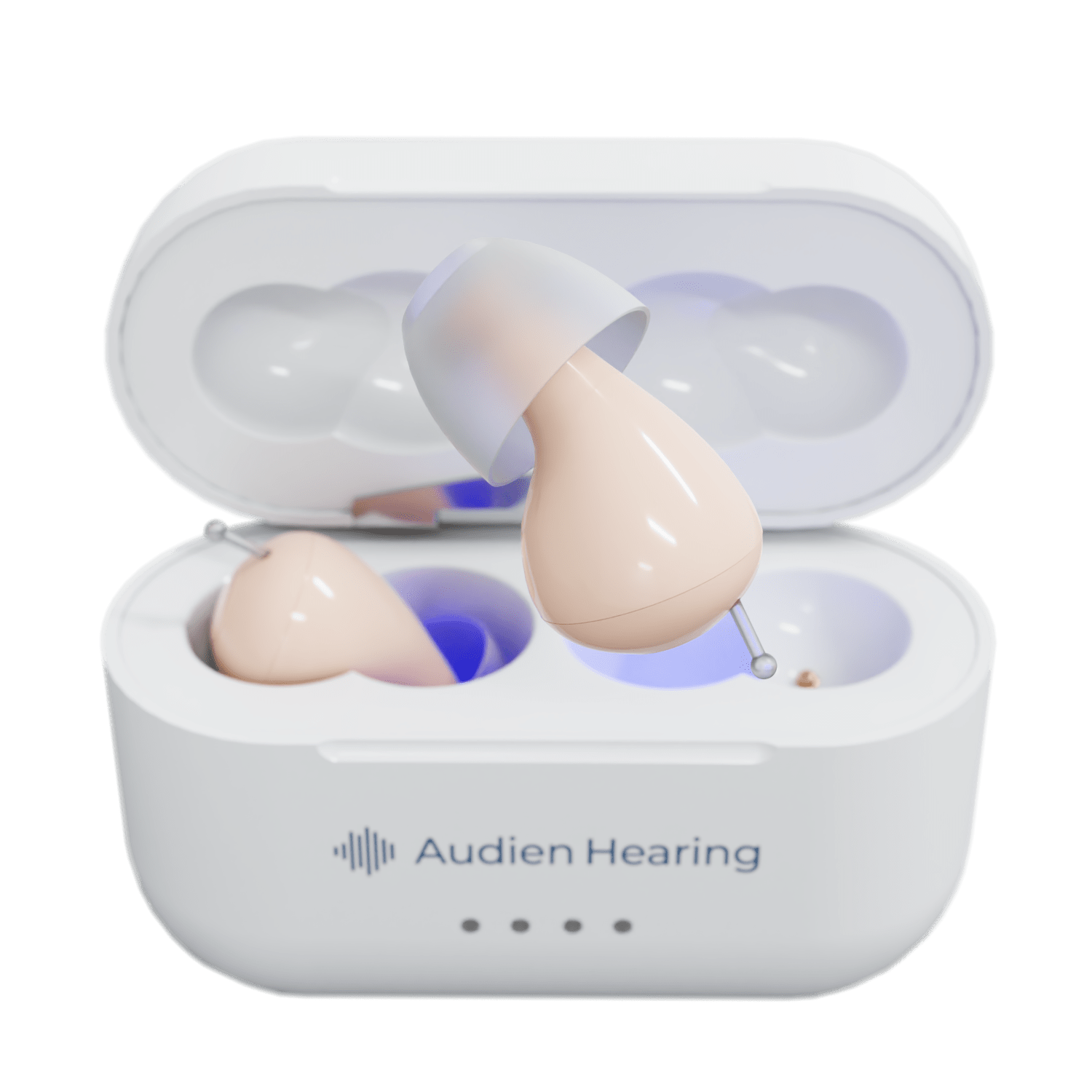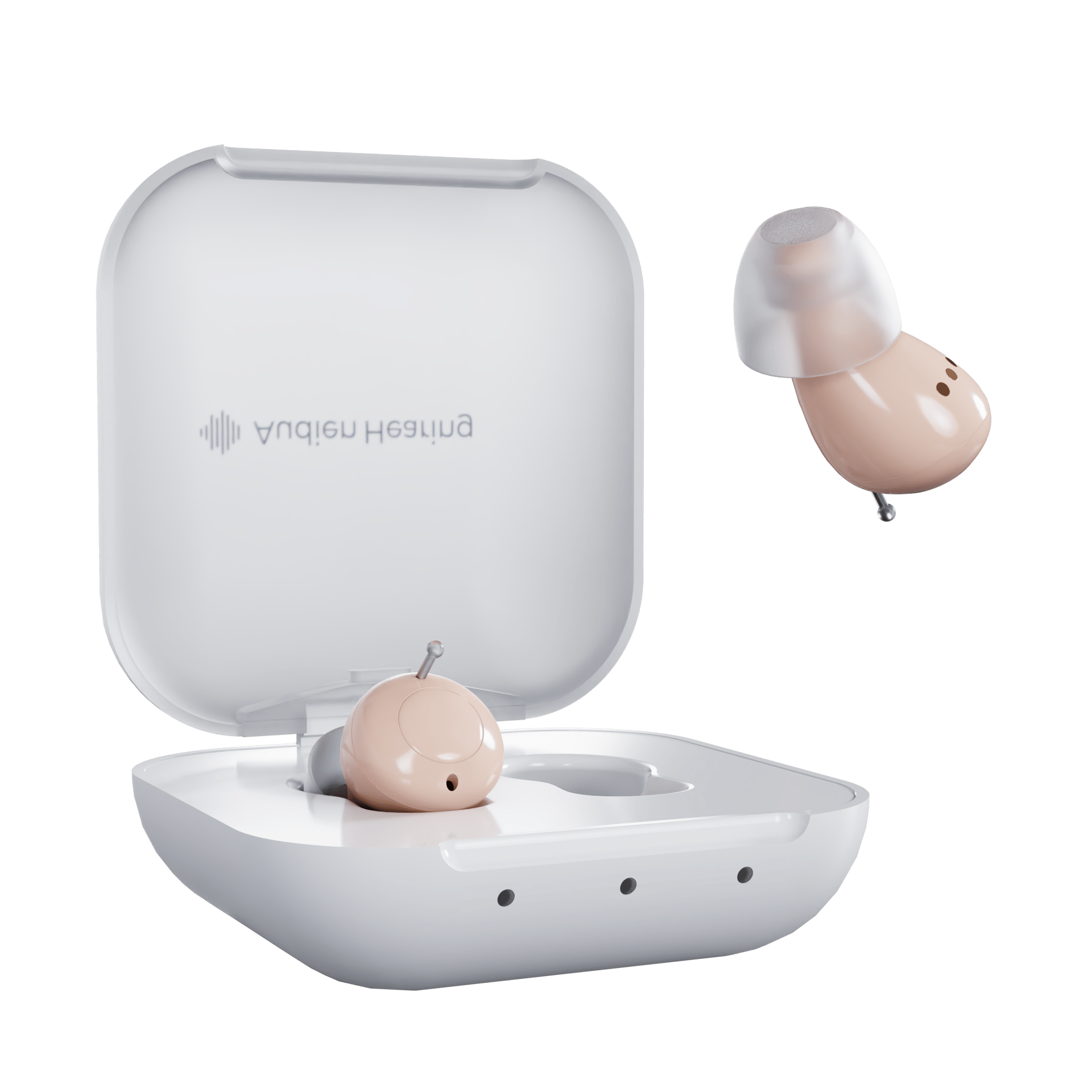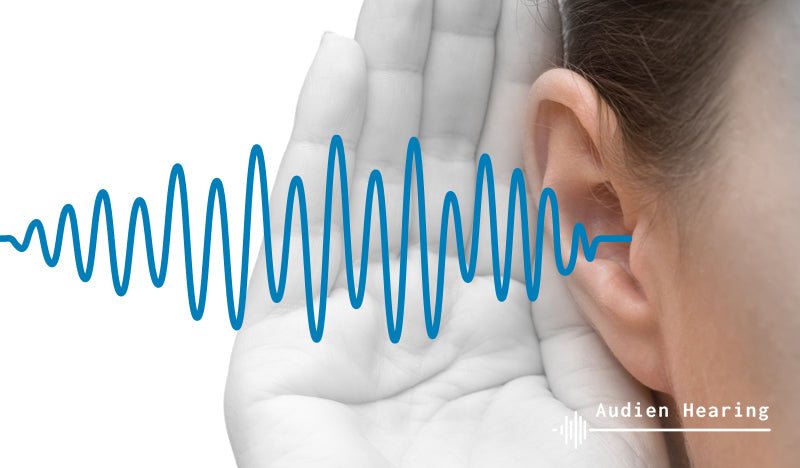Hearing loss is a fairly common experience. 48 million Americans are thought to have one form of hearing loss or other. It’s so prevalent that more people have some level of hearing loss than have Diabetes or cancer.

Between job-related causes of hearing loss and the prevalence of earbuds, it’s no wonder that hearing loss is so common. But how much hearing loss is a problem, and how does it impact the quality of our lives?
Depending on the severity of hearing loss, the quality of life can be seriously impacted.
Everyday experiences such as dining out in a restaurant can become very alienating and depressing for the hearing impaired as speech can be indecipherable from the ambient noise of being in a crowded room.
For the sufferer, conversations can be challenging to follow. The setting can become uncomfortable as it is difficult to follow and contribute to discussions, causing feelings of isolation and lack of social connection.
Before examining how hearing loss impacts our lives, it’s essential to understand hearing loss types and what remedies may be available for each type.
The Main Types Of Hearing Loss
There are three main types of hearing loss that is categorized into four principal degrees of healing damage.
However, before discussing the types and levels of hearing loss, we need to examine the ear’s basic structure and how we hear.
The ear is comprised of three sections, the outer, the middle, and the inner ear. The outer ear, known as the pinna, is made up of what you can see.
The Outer Ear
The outer ear is made of the ear lobe, the ear canal,l, and the eardrum that work to pass sound to the middle ear. The eardrum sits in between the outer and middle ear and separates the two chambers.

The Middle Ear
The middle ear includes the eardrum and the ossicles, three tiny bones that help transmit sound through the ear. Better known as the hammer, anvil, and stirrup, the ossicles vibrate faster or slower as necessary to transmit the sound through the ear canal toward the inner ear.
Typically blockages in hearing occur in one of these two parts of the ear. When we have a blockage, sounds can be muffled, and a sensation of pressure may be experienced. In more severe hearing loss types, we may lose the ability to hear even the slightest to the loudest noise.
We hear in stereophonic sound, meaning that both ears work to listen to a sound simultaneously and listen to the direction that the sound was made and aid in the sound’s clarity. When we suffer damage to one ear or the other, we can struggle with the volume, direction, and distance of the sound being made, which can have real safety issues in some environments.
When one of the two ears has an obstruction or other cause of hearing loss, the hearing’s overall volume is affected and can determine the direction and distance that the sound was made.
The Inner Ear
The inner ear is made up of a snail-shell shaped cochlea and small semi-circle bones that assist with hearing and aid in overall balance.
A vital component of the inner ear is tiny hairs connected to nerves that send the brain signals to be interpreted to sounds. Typical damage to the inner ear is uncorrectable, meaning that damage is permanent at this stage, though some remedies are possible at lower levels of damage.
The 3 Types Of Hearing Loss
There are three types of hearing loss. The causes can stem from natural obstructions such as ear wax build-up that restricts fluid in the ear, injury caused by trauma, congenital disabilities, damage to the inner ear, and other causes.
Conductive Hearing Loss
The first type of hearing loss is also the most common. Conductive Hearing Loss is a condition usually caused by an obstruction in the outer or middle ear. Also known as “temporary” or “transitory” hearing loss, conductive hearing loss is easily the most treatable. Often the damage isn’t permanent and hence why it is called temporary.
Sensorineural Hearing Loss
The second type of hearing loss is Sensorineural Hearing Loss. This type of hearing loss is more severe and is permanent. That’s because this type of hearing loss is damage to the inner ear and the auditory canal. Whether the injury is to the cochlea, the auditory nerve, or the tiny hairs that help transmit sound, there are no procedures to remedy this type of damage.
Mixed Hearing Loss
The final type of hearing loss is Mixed Hearing Loss. Mixed hearing loss is when there is a combination of conductive hearing and sensorineural hearing loss. Since mixed hearing loss includes the damage that occurs to the inner ear with sensorineural hearing loss, the damage is permanent. Still, there may be some remedies to alleviate the lesser harm.
Symptoms Of Hearing Loss
Hearing loss causes sounds to diminish, to become garbled and muffled, speech can be indecipherable, and a lot of simultaneous sounds such as in a crowded room can be heard as a wall of sound rather than individual sounds.
For some, hearing loss can also be a continuous ringing in the ear, known as tinnitus, which is a perception of noise but is not a condition in and of itself. Perceiving a ringing, humming, or buzzing sound in the ear is the most common of symptoms, and the causes may stem from age, prolonged exposure to loud noise, or in some cases, circulatory disorders.
Common symptoms of hearing loss can range from mild pressure in the ear to muffled sounds and garbled speech and aren’t limited to those symptoms:
- Stuffiness or pressure sensation in the ear that is difficult to clear
- Muffled sounds
- Garbled speech and difficulty to understand what was said
- Pain in or around the ear
- Consonants, mostly softer sounding ones like the letter “s,” can be hard to hear.
- Inability to follow conversations or understand what was said, especially in crowded areas
- Struggle to hear higher-pitched noise and sounds
- Withdrawal from joining conversations
- Avoiding social settings, especially in noisy areas
The damage from hearing loss isn’t just limited to our hearing. It can also have a profound impact on the quality of life as well.
The Four Levels Of Hearing Loss
There are four levels of hearing loss, and the impact on the quality of life depends on how much damage occurred and what remedies are available.
Mild Hearing Loss
The most common form of hearing loss is known as “mild” and is usually treatable. Causes of mild hearing loss can be due to a mild obstruction in the outer ear, such as when ear wax builds up and causes a blockage or traps fluid. Softer speech may be affected, but usually, this is a temporary condition.
Moderate Hearing Loss
After the mild hearing loss, the next level is known as “moderate.” With moderate hearing loss, sounds such as consonants are beginning to be difficult to hear without the aid of sound amplification, such as a hearing aid.
Severe Hearing Loss
Severe hearing loss is where the level of damage is so extreme that everyday conversations are indecipherable. Communications, especially in crowded areas where ambient noise is prevalent, can almost be impossible even with hearing aids. This hearing loss is the stage of hearing loss that is typically permanent but is also manageable with a combination of hearing aids and alternative forms of communication.
Profound Hearing Loss
The most serious of all levels of hearing loss is known as “profound.” With profound hearing loss, normal hearing is impossible even with hearing aids. At this level of hearing damage, alternative ways to communicate the need to be explored for the sufferer, and anyone is attempting to communicate with them.
Impacts Of Hearing Loss On Quality Of Life
Any type of hearing loss is going to impact the day-to-day quality of life for the sufferer. Once hearing loss occurs, it can be a nuisance when the sufferer tries to hold conversations at an average volume.
Other activities impacted by hearing loss are the volume of ambient noise that may be indistinguishable from speech, televisions may seem muted, and telephone calls may be difficult to hear.
These experiences may impact how we interact with others, may cause us to miss out on critical information, whether it’s in business or life, and may make the everyday activities a little more challenging to enjoy.
Deteriorating Social Interaction
As hearing deteriorates, conversations at normal volume levels become very difficult to understand, especially in a crowded room such as a busy restaurant, making those experiences less enjoyable. By becoming less pleasant, people living with hearing loss may withdraw from social situations knowing that communication is more complicated and may negatively affect their mental health, self-esteem, and well-being.

Another problem is that softer sounds become nearly impossible to hear, especially sounds from young children and higher-pitched noise. This hearing damage can be problematic for young children and grandkids to engage and enjoy their experiences with the young ones in their lives.
Mental Health Impacts
Whether it’s challenging to hear what your children and grandchildren are trying to say to you or hear their excited little squeaks and squeals, you’re missing out on the quality of life and all the joys of childhood experiences you share with them. These factors can impact the mental health of the sufferer. Loved ones must consider the mental health of the individual suffering from hearing loss.
Possible Relationship Issues
Another significant impact on the quality of life for individuals struggling with hearing loss is the damage done in relationships. Over time the difficulty associated with more severe hearing loss can place strains on relationships and feelings of isolation and alienation as interpersonal relationships are difficult to enjoy.
As communication breaks down due to hearing difficulties, the trust that needs maintenance in a healthy relationship also suffers and can lead to schisms that further deteriorate the relationship.

Suppose you or a loved one is experiencing some type of hearing loss know that there are remedies available. Some treatments may be medicinal or surgical. Others may be with assisted hearing, such as a hearing aid or cochlear implant. Consult with a specialist for treatment options available is the first step, and speaking to a mental health expert that focuses on treatment for those with disabilities is vital.
Regardless of whether the hearing damage is mild or more severe, the sufferer must believe that their experience is a shared one and that they aren’t alone with learning to deal with their hearing loss.
In more severe hearing loss cases, it’s essential for those who have a loved one experiencing hearing loss to understand how to handle the changes that their lives are going through.
Areas Of Life Impacted By Hearing Loss
- Job Prospects and Work Opportunities: Job opportunities and professional growth may be impaired due to ramifications that stem from more severe hearing loss
- Educational Opportunities: Depending on the severity of hearing loss, as the ability to communicate is impacted, so too can be educational growth opportunities.
- Mental Health and Emotional Wellbeing: With a significant change to our bodies, the process of accepting the change can wreak havoc on our mental health and overall emotional wellbeing
- Social Withdrawal: Due to the mental and emotional toll that takes place with hearing loss, the tendency is to withdraw socially, and self-esteem can suffer as a result
- Interpersonal Relationships: With any significant change to our health, it can impact our self-image and how we relate to others
- Quality of Life: Movies, theatre, music, and communication can be impacted due to hearing loss, and those negative experiences may lower the overall quality of life.
The most important thing to keep in mind for the person suffering a hearing loss is that they can communicate, and their self-image is in flux. It’s essential to learn how to help them adapt, and that includes learning new and more efficient ways to communicate with them.
Ways To Communicate With Loved Ones Suffering Hearing Loss
- The most important thing to consider with a loved one suffering some hearing loss is that many physical and psychological changes can cause them to feel a sense of alienation. You must act supportively and patiently as they learn to adapt to their new condition. Learning to communicate with your loved one is vital for learning how to adapt to their unique situation.
- Learn to get their attention visually or physically before speaking
- Face your loved one and speak in a slower tempo and enunciate your words clearly
- Learn to speak louder without yelling
- Use expressive body language, use your hands, and face to make critical points.
- Have some physical tools such as pen or paper, cell phone, or tablet
How To Communicate To Others If You Suffer Hearing Loss
- Tell people that you suffer some form of loss of hearing.
- Ask them to speak slowly and clearly.
- Encourage face to face and uninterrupted visual communication, hands on the face, napkins over the mouth. Any obstruction can make comprehension more difficult.
- Ask questions when you need clarity.
- Ask that key phrases be repeated if you’re unsure of what you heard.
Communicating that you have some hearing loss and being upfront about the need for communications to follow the tips above will make it easier for you to speak and share more effectively with others. Communication while hearing impaired is a two-way street. It takes the communicator and receiver working together for effective communication.
Along with inter-personal communication being affected by hearing loss, the overall quality of life is impacted in other ways. For example, another impact on the quality of life can be from the loss of enjoyment in comfort type activities such as listening to music and the joyful noise of young children. Other types of entertainment, like a television show or movie, are too quiet to follow. The difficulty to hear can make our everyday diversions and entertainment less enjoyable.
Safety Concerns Due To Hearing Loss
Safety is another primary concern that can affect the lives of hearing loss sufferers. A person with hearing loss will struggle to listen to many types of electric vehicles’ quiet sounds that can’t be heard. Another safety issue is the beeping of a truck reversing on the job site, or even the ability to listen to the sound of a whistling tea kettle can all have significant health risks.
The impacts of hearing loss don’t just affect the individual sufferer. It puts a strain on every person that cares for that individual. From everyday communication, self-esteem, and mental health issues that may stem from the change to life quality, it takes patience and understanding for the relationships to flourish.
If you or a loved one experiences any hearing loss type, speaking to a primary care physician or audiologist is a significant first step to diagnose the level of loss and any remedies available.













